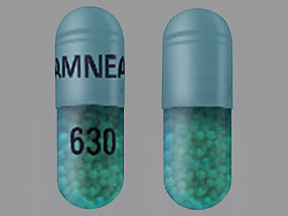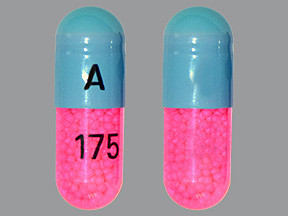ITRACONAZOLE - ORAL
PHONETIC PRONUNCIATION: (IT-ra-KON-a-zole)
COMMON BRAND NAME(S): Sporanox
GENERIC NAME(S): itraconazole
Uses
USES: Itraconazole is used to treat a variety of fungal infections. It belongs to a class of drugs known as azole antifungals. It works by stopping the growth of fungi.
How to use ITRACONAZOLE - ORAL
HOW TO USE: Read the Patient Information Leaflet if available from your pharmacist before you start taking itraconazole and each time you get a refill. If you have any questions, ask your doctor or pharmacist. Take this medication by mouth with a full meal as directed by your doctor, usually once or twice daily. Swallow the capsules whole. Take itraconazole 2 hours before or 1 hour after antacids. Antacids may decrease the absorption of this medication. Also, take this medication with an acidic drink (such as cola) if you have decreased or no stomach acid (achlorhydria) or if you take drugs that decrease stomach acid (for example, H2 blockers such as ranitidine, proton pump inhibitors such as omeprazole). Consult your doctor or pharmacist for more details. The dosage and length of treatment are based on your medical condition and response to treatment. Take this medication exactly as prescribed by your doctor. Some conditions may require you to take this medication in cycles (twice daily for 1 week, then stopping the medication for 3 weeks). For the best effect, take this antifungal at evenly spaced times. To help you remember, take this medication at the same time(s) every day. Mark your calendar with a reminder if you are taking this medication in cycles. Continue to take this medication until the full prescribed amount is finished, even if symptoms disappear after a few days. Stopping the medication too early may result in a return of the infection. The capsule/tablet and solution forms of this medication deliver different amounts of medication and may be used for different purposes. Do not switch between the different forms of this drug without your doctor's permission and directions. Tell your doctor if your condition does not get better or if it gets worse.
Side Effects
Precautions
Interactions
Overdose
Images
Reviews
Warning
WARNING: Itraconazole should not be used to treat fungal nail infections if you have a history of heart failure. Itraconazole may rarely cause or worsen heart failure. Tell your doctor right away if you develop symptoms of heart failure, such as shortness of breath, swelling ankles/feet, unusual tiredness, or unusual/sudden unexplained weight gain. Consult your doctor for more details. This medication can slow down the removal of other medications from your body, which may cause very serious (possibly fatal) side effects to occur. Examples of affected drugs include certain "blood thinners" (such as ticagrelor), colchicine, certain drugs to treat irregular heartbeat (such disopyramide, dofetilide, dronedarone, quinidine), eplerenone, ergot alkaloids (such as dihydroergotamine, ergotamine, methylergonovine), felodipine, fesoterodine, irinotecan, ivabradine, lurasidone, methadone, midazolam, nisoldipine, pimozide, ranolazine, certain "statin" cholesterol drugs (such as lovastatin, simvastatin), solifenacin, telithromycin, triazolam, among others. Be sure to tell your doctor and pharmacist about all the products you use (including prescription drugs, nonprescription drugs, and herbal products).
Disclaimer
IMPORTANT: HOW TO USE THIS INFORMATION: This is a summary and does NOT have all possible information about this product. This information does not assure that this product is safe, effective, or appropriate for you. This information is not individual medical advice and does not substitute for the advice of your health care professional. Always ask your health care professional for complete information about this product and your specific health needs.



No Reviews Yet